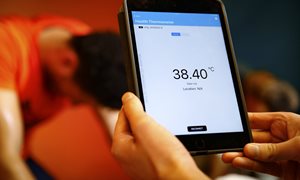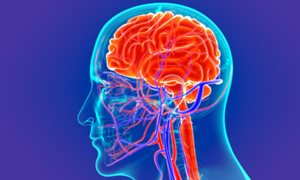 In Stroke Thijs Landman and colleagues described the clinical and preclinical evidence for a new non-invasive treatment in patients with an ischemic stroke: Remote Ischemic Conditioning. Remote ischemic conditioning consists of inducing short bouts of ischemia and reperfusion to a limb (using a regular blood pressure cuff) which subsequently protects remote organs against prolonged ischemia. This review summarizes the current evidence for this new treatment in ischemic stroke.
In Stroke Thijs Landman and colleagues described the clinical and preclinical evidence for a new non-invasive treatment in patients with an ischemic stroke: Remote Ischemic Conditioning. Remote ischemic conditioning consists of inducing short bouts of ischemia and reperfusion to a limb (using a regular blood pressure cuff) which subsequently protects remote organs against prolonged ischemia. This review summarizes the current evidence for this new treatment in ischemic stroke.
Publication
Remote Ischemic Conditioning as an Additional Treatment for Acute Ischemic Stroke
Landman TRJ, Schoon Y, Warlé MC, de Leeuw FE, Thijssen DHJ.
Thijs Landman is member of theme Vascular damage.
Related news items

Grants for heart and kidney research Two awards to Radboudumc in Open Competition ENW-XS
21 July 2022Two researchers from the Radboudumc receive a grant from the NWO within the Open Competition of the Exact and Natural Sciences. They are Thijs Eijsvogels, who studies the heart, and Pieter Leermakers, who studies the kidneys.
go to page
Your heart rate as a thermometer Research Olympic athletes will be followed up during 4Daagse
18 July 2022Body temperature can be determined from heart rate. This is what research by the Radboudumc among Olympic athletes shows. Athletes can use this method during training to eventually perform better in the heat. The technique is now being further investigated among participants in the 4Daagse.
go to page
Young Investigator Award for Esmée Bakker
14 April 2022 Esmée Bakker received the Young Investigator Award for her abstract ‘Acute and long-term mortality rates among participants of mass-participation sports events versus the general population.’ go to page
Want to be sustainable and cool? Choose fans more and aircon less Keep cool and help the environment
12 April 2022 A recent published study led by the University of Sydney, has found using indoor fans more often allows people to reduce their air conditioner use without changing how hot they feel, paving a way for reducing future energy use and greenhouse gas emissions. Coen Bongers, is one of the co-authors. go to page

